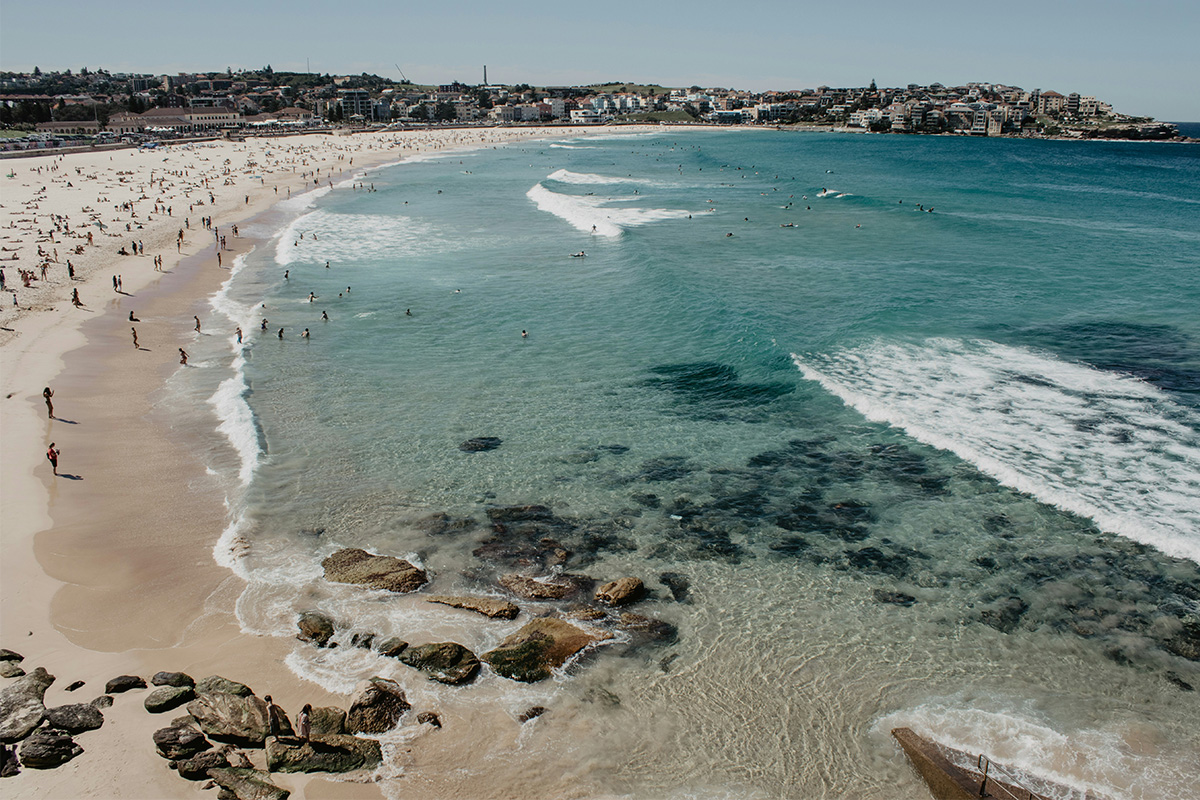
If you've ever endeavoured to go down the path of ethical shopping, you've likely encountered greenwashing, lack of transparency and all the things in between. Working out what is actually an ethical and sustainable choice is hard. Especially when you consider just how many areas of supply you need to consider, like packaging, production practices, longevity and treatment of makers.
With nearly every brand launching a 'sustainable edit' or a 'considered collection', how can you cut through all the noise and find what is truly a responsible purchase? We didn't have the answer, so we asked an expert instead.
Niccii Kugler is the founder of Nash + Banks, a store that exclusively stocks ethically and sustainably produced items. She's made a career out of vetting brands rigorously, and had more than a few tips to share on how we can see through what is simply marketing, and what is true commitment. Below, she answers all our question how to shop sustainably.
First off, how can we determine what is ethical or sustainable? Is there an industry
standard?
The short answer is no. Not yet. But I think it’s important to start by recognising where we sit at the moment concerning these goals and to view this as a process or journey. Right now, as a global community, we have created a largely unsustainable system that in many cases thrives on the exploitation of our most vulnerable communities. Having a clear line of sight into the ethical and sustainable qualifications that span all aspects of today’s complicated supply chains is a complex undertaking - from resources to manufacturing to transportation and beyond.
That being said, there are an increasing number of certifications and governing bodies working to create benchmarks across a wide range of these critical areas. They are many and varied and often specific to one area of a supply chain - for instance, forest stewardship, animal cruelty, fair trade, carbon emissions, textile standards, ethical employment etc. But through these and other certifications like B Corp - which considers the impact of a
company’s decisions on their workers, customers, suppliers, community, and the environment - we are moving closer to greater transparency and accountability for brands claiming the ethical and sustainable titles.
Buying ethically or sustainably shouldn’t be a chore. This is one of the core reasons that I launched Nash + Banks. Before including them in our collection, we research each brand in detail to learn more about their purpose, process, and products. We then have that information on every product page, making it easy for our community to get all the information about the product before buying it.
What do you look for when determining whether a product is ethical or sustainable? Are there any hallmarks?
Homework is my jam, so I spend quite a lot of time on About pages, FAQs and researching the details, materiality, and processes to substantiate a brand’s claims. I start with what the company openly communicates about their products (and what they leave out). From there, I think it’s important to talk directly with the founders to learn in more depth about their motivation, processes, certifications, and the challenges they face in achieving some of their sustainability or ethical goals. Once a brand has demonstrated transparency, accountability, and a genuine commitment to creating better products (even if not perfect yet), I drill down into each product to classify it correctly on the Nash + Banks website.
How can you tell if a brand is simply greenwashing?
The first thing that I’m interested in when I come across a brand that is labelling itself as ‘sustainable’, ‘ethical’, ‘green’ etc., is to take a long, hard look at whether they are supporting these claims openly and transparently. Have they provided detail regarding their raw materials, production process, the country they manufacture in and the ethical standards and certifications they have in place? If not, why not? An immediate red flag for me is the use of terms like ‘sustainable’ (particularly in marketing and communications) with little to no information substantiating the claim. Brands that are quick to own a value, without making an effort to understand what it means, or how they will deliver against it now and in the future, are often greenwashing, content to profit off an ethos that they are not committed to.
I’ve learnt from working with passionate founders in this space that creating a sustainable, ethical or zero-waste product is not an easy path. That it takes dedication and commitment, often at the expense of ease, scale or financial gain. The brands that achieve progress and innovation in this endeavour deserve our support.
How can the average consumer read between the lines?
In my experience, brands who genuinely care and are built on delivering against these values provide a lot of clear evidence, are transparent about their shortcomings and share their goals for the future.
But when in doubt, jump on your search engine of choice (try Ecosia if you’re looking to plant trees as you investigate), and go down the rabbit hole.
Is there any database or source of truth consumers can use to find accurate information about the products they buy?
There are a growing number of resources in this area. When curating for Nash + Banks or researching something for personal use, I tend to combine a mix of certifications, not-for profit benchmarks and journalists/organisations who provide a sobering but realistic breakdown of the challenges and facts.
Here are a few of my current go-to's outside of specific certification websites (although this
list continues to change as research, tech and resources evolve):
- B Corporation
- KnowTheChain
- Baptist World Aid’s Ethical Fashion Report
- Ecocult
- Good On You App
- Fashion Revolution
- DoneGood Extension
What advice would you give to someone looking to be more considered about their purchases?
It can be overwhelming, so I recommend starting with the values that resonate with you most. We each have our own hierarchy in terms of which social and environmental challenges resonate with us most. Start by recognising which are personal deal-breakers. For example, is single-use plastic a hard 'no', or are you more focussed on reducing your carbon footprint?
Each individual will answer differently, and that’s ok. The process of becoming more considered can be overwhelming, and taking it one challenge and step at a time with a view to what you want to achieve will help to make your journey a sustainable one. What can start as a focus on one value can quickly gain momentum to include others.
What is the biggest misconception you think people have about ethical sourcing?
I think that many people - especially those just starting to shop ethically - underestimate the immediate and long-term positive impacts that their decisions have throughout the supply chain when they choose to support genuinely ethical brands.
Image: Nash + Banks



